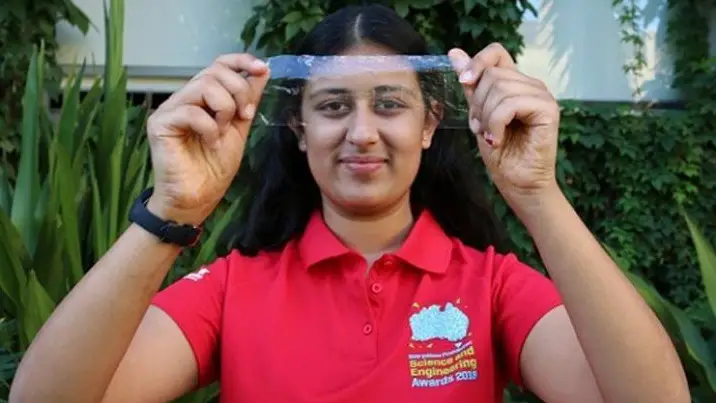In 2017, global consumption of standard plastics (with a lifespan of 500 years or more) reached new highs, with about eight million metric tons of plastics ending up in the oceans annually. In addition to efforts to reduce this figure with waste education and recycling education, the need to develop biodegradable, compatible alternatives to petroleum-based plastics is essential to our future. Many companies around the world are making progress in the production of hemp-based plastic products. In the United States, with the advent of the Farm Bill in 2014, which allowed for truly innovative leaps in hemp production, companies can now legally grow and process hemp for research purposes. There are already about 19 countries participating in this program, and all are following the new potential applications of hemp.
To that purpose, teenage Angelina Arora, a 17 year old medical student, has created plastic that can decompose in nature in just 33 days. How did that idea come about? She spent most of the day in the lab. One day she noticed that prawn sheels look like plastic, so like any scientist, she devoted her time to studying the substance that makes prawn sheels look like this. She did some research and came up with the idea to make plastic that is biodegradable and that will be of great benefit to nature and society. The number of contaminated soils with plastic packaging will be reduced, as well as the pollution of water surfaces. Angelina was aware of the excessive pollution that threatens the whole society from plastic waste and says that it was an incentive for her to advocate for an innovation that will help prevent plastic pollution.
Angelina explains that apart from the fact that the material she made decomposes in just 33 days, the process is 1.5 million times faster than the decomposition of the plastic materials we use today. Arora spoke about her innovation on several national televisions, and her work was recognized by many companies. Yet even though she has made her prototype, she is waiting for the procedures necessary to be able to patent her innovation. Her plans for the future are for her to start producing such materials for commercial use around the world. We are sure that there are companies that will respond positively to her request, because it has been determined that the costs of making such materials are not too high, and the benefit will be mutual.
Did you know?
What does the name “bio” mean that we can read on bags or plastic packaging?
Biodegradable plastic does not mean naturally degradable. No conventional plastic bag can decompose in nature, whether the plastic is made of biomass or fossil material. Microorganisms in nature cannot decompose plastic within a period of time comprehensible to humans. However, when it comes to biodegradable plastic, it’s so called because some substances can be added to the plastic that allow microorganisms to break it down. But some particularly favorable conditions – oxygen, adjusted humidity and temperature – are needed to decompose the plastic biologically. This requires an industrial composting plant.

